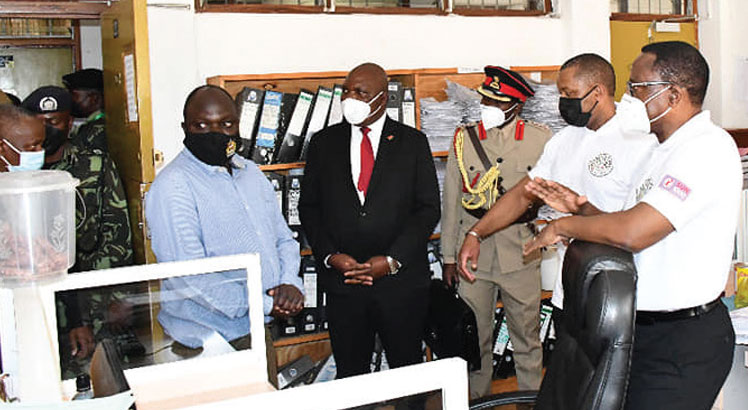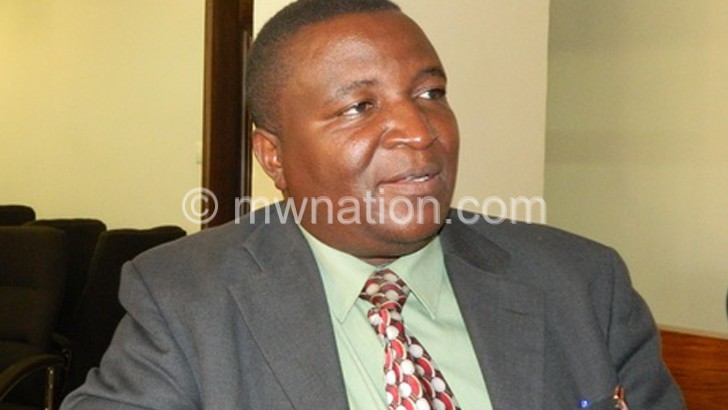Funding woes choke MDAs
- Treasury attributes delays to Ifmis
Delayed funding to government ministries, departments and agencies (MDAs), including central hospitals, forced some of them to bank on donors for procurement of medicines and medical equipment between July and September this year.

Ministry of Finance and some of the MDAs last week confirmed the challenges which they attributed to the Integrated Financial Management and Information System (Ifmis), the government’s electronic payment platform.
But development experts have described the situation as avoidable in an ideal management system.
In an interview on Wednesday, Ministry of Health spokesperson Adrian Chikumbe described the impact of the funding woes as dire because activities have been grounded by Ifmis. He said the ministry has relied on support from some donors which, he said, remains inadequate.

Chikumbe said the situation is compounded by the fact that even the officers trained to operate the Ifmis system still find it difficult to operate. This, he said, has resulted in a backlog of files at the Accountant General pending processing and payment.
He said new service providers are not being paid up to now, thereby affecting their commitment to perform.
Chikumbe said: “Vehicles have been operating beyond their service limits, exposing them to serious breakdowns. Those in garages are not being paid for and are, therefore, not being released.
“We have been using fuel on loan to sustain ambulance services. Debts keep accumulating due to non-settlement of payment to suppliers of goods, works and services.”

He said given the outlined difficulties, central hospitals are relying on donors for the payment of utilities and the procurement of other essential medicines and medical equipment.
Chikumbe said the ministry has also resorted to the use of the previous financial year’s payments for utilities such as water and electricity. He said central hospitals are also accumulating arrears in the procurement of food rations for patients.
In a written response on Wednesday, Ministry of Mining Principal Secretary Joseph Mkandawire said they have faced funding challenges since the start of the 2021/22 financial year which rolled out on July 1 this year.
But he said the situation was now improving.
Mkandawire said: “Treasury has been funding us. But there have been disbursement delays from the Accountant General. Currently, payments have been made and are being made. I wish you had asked some two to three weeks ago.”
He said the lack of funding affected the provision of technical extension services to artisanal small miners (ASM), monitoring and inspection of mining operations, mineral revenue collection exercises and mine surveying.
Ministry of Homeland Security spokesperson Andrew Nyondo said while funding was being provided from the Treasury, the ministry was unable to effect payments because of changes from use of cheques for payment to the electronic funds transfer (EFT) mode.
He said that while the situation is now normalising, the ministry was still affected because it was not able to access funds, a development which halted some operations.
Ministry of Justice spokesperson Pirirani Masanjala shared a similar situation in a written response on Wednesday.
However, he said they continue to fulfil their mandate by prioritising activities to implement and using other available resources to mitigate the impact caused by the migration.
In an interview on Wednesday, Treasury spokesperson Williams Banda said Ministry of Finance in July 2021 fully rolled out the new Ifmis.
He said that following the transition from cheques to EFT, funding for the first quarter of the financial year covering July to September was affected because all the cheques were phased out.
Banda said: “What happened was that transactions for July, August and September were prepared using bank transfers through cheques, what this means was that due to the transition, some funding disbursements were affected.
“We agree there were the payment delays but as I am talking to you now, the backlogs have been cleared through the EFT. The problem is not funds, Treasury has the money in the budget as appropriated by Parliament.”
He said there has been a challenge with some wrong accounts in the system which also contributed to the delayed payments as it has been affecting other transactions given payment.
The problem has also affected service delivery in the education sector especially in secondary schools as they are failing to procure teaching and learning materials, including dietary needs for students and payment of utility bills.
Head teacher at one of the government-owned boarding secondary schools, speaking anonymously for fear of reprisals, said disbursement of funds has been erratic since the start of the financial year.
Said the head teacher: “Vouchers are being sent back time and again for corrections or further attachments. I can say one of the corrections is mostly on attachment of loose minutes and account numbers of the supplier of the product or service being sought.”
In a written response, education expert Dr Steve Sharra said schools have been affected badly due to the development as they are reporting being in dire straits, with boarding schools running out of food for students.
He said: “There are no Covid-19 supplies, no teaching and learning materials, and no stationery. End of year examinations start next week and some schools have not prepared anything because they have neither the stationery nor the requisite equipment.
“Support staff have gone unpaid for months, as have utility bills. School equipment, including vehicles in schools that have them, has gone unrepaired. Some schools fear they may have to temporarily close as they cannot continue operating.”
Sharra said the country cannot afford such kind of national self-sabotage as the effects of all the funding woes manifest themselves in the status of the overall quality of not just the education system, but the entire governance architecture.
Economist Milward Tobias, who is executive director of the Centre for Research and Consultancy, said the impact of delayed disbursement of funds is that implementation of activities has been delayed and that can affect development outcomes.
He said it would be helpful in future to foresee such hitches in a transition and plan a backup system so that government operations do not slow down.
In September, President Lazarus Chakwera and Vice-President Saulos Chilima demanded an explanation from the Department of Human Resource Management and Development (DHRMD) on delayed processing of salaries for civil servants.
Besides Ifmis, the Malawi Government is also facing financial challenges worsened by low revenue collections to finance the national budget. In August, Treasury reported a deficit of K9.6 billion.
Minister of Finance Felix Mlusu’s K1.9 trillion 2021/22 National Budget also has a budget deficit of K730 billion or 8.2 percent of the gross domestic product (GDP).
His maiden budget in 2020, framed at the peak of the Covid-19 pandemic, faced a K718.3 billion deficit or seven percent of GDP.





